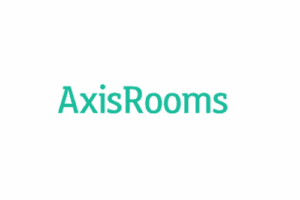Everybody Likes Surprises, But Not In Business: Use Big Data To Make Forecasts For Your Hotel
When we are talking about hotel management, Big Data is collecting any information about your guests that helps to learn more about them. Analyzing it helps you operate more efficiently and enhance the guest experience at your hotel. And most important, instead of looking only at what happened in the past, data available can more accurately measure and predict potential buyers. But how it works?
The first step is understanding which data sets are most relevant to your strategy and your hotel. Pay attention and think seriously about consider investments in these 7 points from now on:
Historical data and booking pace
With historical data, you can begin to recreate past booking curves to get an idea how far in advance rooms for the same date were booked in past years.
Study Competitor pricing data
Competitor rate shopping can be rather easy and even done manually, but with today’s real-time pricing strategies, it can be cumbersome. A revenue management system or another service can explore your competitors’ websites bringing information back to you. How nearby hotels are priced for an upcoming date can help you understand overall market demand. This insight can be used early in the forecasting process as a baseline, but you shouldn’t rely only on what your competitors are charging.
Events
Historical booking information allows you to establish a baseline for important dates like holidays and annual area events that affect demand. You can also troll local media, convention and visitors bureaus, and youth and church groups for more information about upcoming events.
Airlift data
The connection between air passenger information and hotel demand is clear. If more flights are scheduled to land in your market, you can expect more travelers looking for a place to stay. Imagine knowing a week in advance that your local airport will have twice the amount of inbound travelers arriving. It stands to reason that hotel demand will be more than expected.
Social reviews and ratings information
Hoteliers are much more cognizant today of their “online reputation,” or aggregation of past guest reviews and ratings. Up for debate is just how much this third-party score should affect your forecast and pricing decisions. So, when forecasting, it’s important to look at how your review scores have changed over the past year, for better or worse, and take that into consideration when determining whether to expect more or fewer guests. Also, look at your competitors’ online rating changes and consider how that could affect your forecasting and pricing
Weather data
Tracking weather is another way hotels can better predict upcoming demand changes. Monitoring local weather in feeder markets can provide additional insights into how many people may be visiting your market. For hotels and resorts in weather-driven markets, this can provide significant insight. Accurate five-day forecasts can mean the difference between profits and losses.
Web-shopping data
This data set is probably the most important to consider when forecasting demand. Not everyone visiting your hotel website is actually booking a room. Many potential guests are searching specific dates, checking prices and leaving your website without completing the booking or booking elsewhere. Monitoring this lost business can provide incredible insight into demand and price elasticity.
So, monitoring your online review scores more closely and factoring them into your decision-making. Airlift and weather data can be really beneficial in many markets. Web-shopping data and tracking lost business is crucial to an accurate forecast. Keep your eyes opened for information on outside influences that can help fine tune your forecast and always consider new data sets that may affect hotel demand. Technology can integrate and help correlate a variety of data sets, but knowing which ones are the most important is key. By building accurate forecast months into the future, you can make profitable rate adjustments earlier in the booking window and fill more inventories at optimal prices to drive overall revenue.



